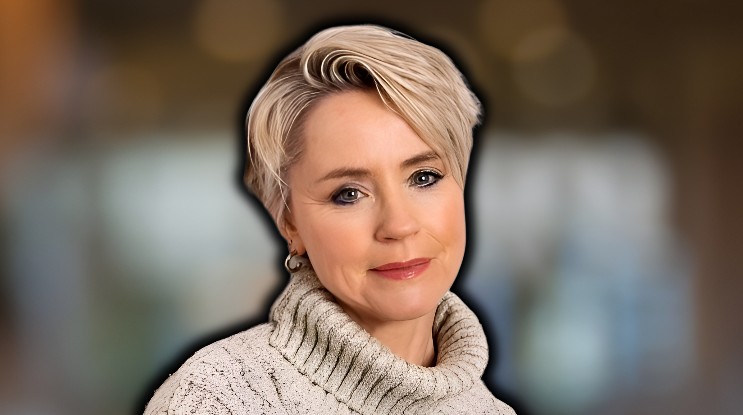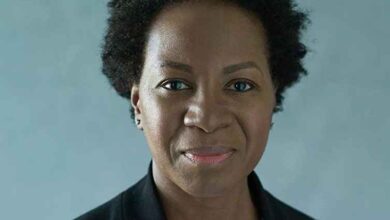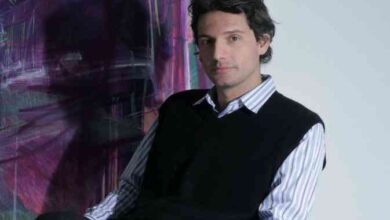Emma Rydal: The Multifaceted Journey of a Northern Star

Emma Rydal is a name that resonates with audiences familiar with British film, theatre, and television. From her debut in culturally significant cinema to her creative exploits as a playwright and producer, Rydal’s career is a shining example of versatility, resilience, and artistic passion. Born in 1973 in northern England, Emma has spent decades building a reputation not only as a seasoned actress but also as a powerful storyteller, particularly through her theatre company, La’al Marra Productions.
Early Life and Northern Roots
Emma Rydal’s early life in the north of England profoundly influenced her artistic voice. Raised amid the rugged beauty and grounded culture of Cumbria, Rydal drew inspiration from her surroundings and the authentic dialects and stories of her people. This foundation would later become a hallmark of her writing and performances, bringing rawness and realism to everything she creates.
From an early age, Emma was drawn to performance, studying the nuances of human behaviour and local narratives. She pursued formal training in drama and went on to hone her craft in repertory theatres and fringe festivals. This grassroots approach shaped a deeply empathetic performer and a socially aware writer.
Breakthrough in Cinema: East Is East
Emma Rydal first caught the public’s eye with her role as Stella Moorhouse in the critically acclaimed 1999 film East Is East. The BAFTA-winning film, which explored the trials of a British-Pakistani family in 1970s Salford, remains a cultural milestone in British cinema. Rydal’s supporting performance added texture and balance to the ensemble, and it marked her entrance into mainstream acting circles.
East Is East was more than a stepping stone; it set the tone for the kind of projects Rydal would go on to pursue—thought-provoking, grounded in realism, and socially reflective. Her performance as Stella, while brief, showcased her ability to stand out in a cast packed with strong characters.
Television Roles and Broadening Horizons
Throughout the early 2000s, Rydal became a familiar face on British television. One of her most notable roles was Maz O’Loughlin in Coronation Street, one of the UK’s longest-running and most beloved soap operas. Her performance added nuance to the show and demonstrated her ability to bring humanity to everyday characters.
Emma’s television appearances are varied and span across multiple genres. From the football-themed drama Playing the Field to the offbeat comedy of Swiss Toni, Rydal proved her adaptability. She also featured in popular series such as Holby City, Emmerdale, Doctors, and Dalziel and Pascoe, continuously delivering believable and grounded portrayals.
A significant milestone came with her casting in Sky One’s comedy-drama Stella from 2014 to 2016, where she played student nurse Celia Williams. This role allowed her to combine comedic timing with emotional depth, contributing significantly to the show’s charm and relatability.
The Theatre as a Personal and Political Space
Theatre has always been close to Rydal’s heart, not just as a performer but as a writer and creator. She founded La’al Marra Productions, a company committed to producing honest, local stories that resonate on a universal level. The name, derived from the Cumbrian dialect for “little friend,” symbolises the intimate and deeply human stories she aims to tell.
Her debut play True received widespread acclaim, winning the Audience Award at Manchester’s 24:7 Theatre Festival and a prestigious Equity Award. It explored intergenerational female relationships with an authenticity that only someone with Rydal’s sensitivity and local insight could achieve.
Through La’al Marra, Rydal has continued to write, direct, and produce works that speak to modern audiences while rooted in regional identity. Her plays often address themes like mental health, family dynamics, and societal expectations, bringing marginalised voices to the forefront.
Radio Work and Voice Acting
Emma Rydal’s talents extend well beyond the stage and screen. She is a prominent voice in British radio drama, having starred in productions for BBC Radio 3 and 4. These include adaptations like Mary Barton and original works such as Shadow Baby and Butchers Perfume. Her voice’s emotive range and clarity make her a natural fit for audio storytelling.
Additionally, Rydal has made her mark in voice-over work. With a distinct northern accent and rich vocal tone, she has voiced commercials for major brands including Toyota, United Utilities, and Max Factor. She has also narrated audiobooks, bringing literature to life for thousands of listeners.
Recent Projects: Soaked
In 2025, Emma Rydal returned to the spotlight with her solo-play Soaked, which she both wrote and performed. The play, directed by Peter Macqueen, toured various northern UK venues and was met with widespread acclaim. It revolves around Imogen, a woman whose social drinking habits spiral into an emotional reckoning when a new presence disrupts her routine.
Soaked delves into Britain’s cultural relationship with alcohol, examining how easily casual drinking can mask deeper emotional struggles. Critics praised the play for its mix of humour and poignancy, and for Rydal’s commanding stage presence. The physical comedy and costume changes added a dynamic element that kept audiences engaged while tackling serious subject matter.
This project encapsulates Rydal’s strengths—topical storytelling, strong female leads, and emotionally layered performances. It also reinforces her commitment to touring theatre that is accessible, especially to communities outside London’s cultural centre.
Emma Rydal’s Artistic Philosophy
Emma Rydal’s body of work reveals a consistent thread: a belief in the power of storytelling to reflect, challenge, and heal. Whether through a radio drama, a stage play, or a voice-over script, she brings integrity to her craft. She is particularly passionate about regional stories, championing northern voices that are often underrepresented in mainstream media.
She also views theatre and performance as forms of activism. By exploring themes such as mental health, addiction, and family trauma, she uses her platform to open conversations and foster empathy. Her work is not merely entertainment but a mirror held up to society.
Challenges and Triumphs
Like many artists working outside major commercial hubs, Rydal has faced the inherent challenges of funding, visibility, and balancing mainstream work with independent creative pursuits. Yet, she has remained steadfast in her vision. Her success is not measured solely by fame or awards but by the depth and impact of her work.
Emma’s career demonstrates that consistent, meaningful contributions to the arts can build a legacy that inspires others. Her journey also highlights the importance of adaptability in an ever-changing industry. Whether it is tackling a voiceover gig, touring a one-woman play, or mentoring young artists in Cumbria, Rydal approaches each task with equal passion and professionalism.
Looking Ahead
With the success of Soaked, new opportunities are likely to follow. Rydal has hinted at further writing projects and potential collaborations in both theatre and television. Her ongoing work with La’al Marra suggests that more bold, local stories are in development.
There is also speculation about her involvement in a new film project set in the Lake District, as well as potential expansions of Soaked into a digital format for broader access. Emma remains committed to bridging the gap between traditional and modern storytelling mediums.
Conclusion
Emma Rydal represents a rare blend of artistic versatility, regional authenticity, and human insight. Her work spans film, television, theatre, radio, and voiceover with an unwavering commitment to substance over spectacle. While she may not be a household name, within artistic circles and among those who value meaningful storytelling, she is a force to be reckoned with.
In a world often dominated by fleeting trends and superficial fame, Emma Rydal stands as a beacon of what it means to be a true artist. She reminds us that the most powerful stories often come not from the centre of the spotlight but from the edges, where voices are honest, grounded, and deeply resonant. And for that reason, her journey is not just admirable—it’s essential.



